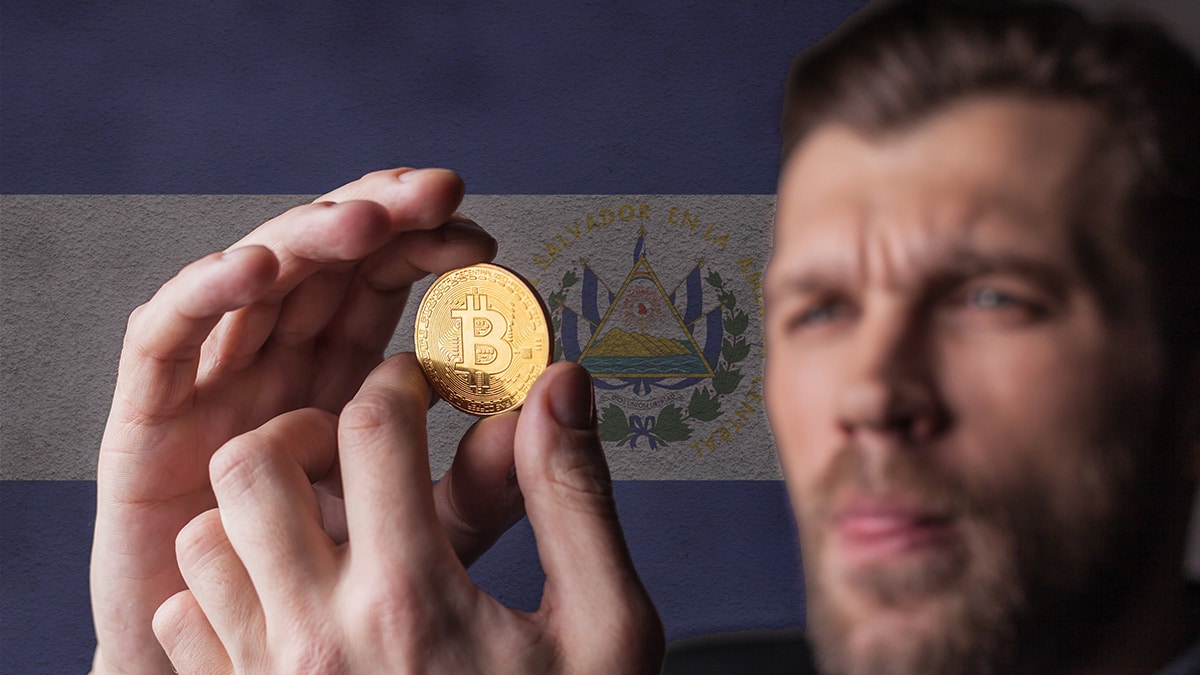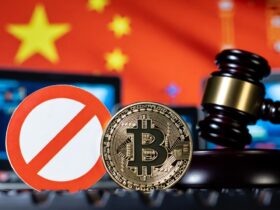Bukele did not give up, they say from the Bitcoin Beach citadel project.
Despite advanced regulation, IMF seeks transparency and control over bitcoin in El Salvador.
Bitcoin (BTC) plays a central role in the agreement reached by El Salvador and the International Monetary Fund (IMF) to grant the Central American country a loan of USD 1.4 billion under the Expanded Fund Facility (SAF).
Many will wonder, what does digital currency have to do with this? The answer is that, to finalize this agreement, the Salvadoran government accepted the condition imposed by the IMF to eliminate the obligation for local companies to accept BTC as a means of payment, making its use voluntary. The measure was previously reported by CriptoNoticias.
Since 2021, the IMF has pressured El Salvador to abandon its bitcoin policy since it was established as legal tender. And, with the current agreement, the international organization emphasizes establishing strict limits on the public sector in economic activities related to bitcoin, decreasing the government’s direct participation in transactions and purchases with this cryptocurrency to avoid fiscal and stability risks.
The above could be interpreted as that the Central American country will not continue accumulating bitcoin as part of its reserve; however, Bukele pointed out earlier through his account on the social network X that El Salvador continues to accumulate 1 BTC per day, every day.

As the IMF points out in its statement, the agreement with El Salvador contemplates that taxes will continue to be paid exclusively in dollars, ensuring fiscal stability and avoiding exchange volatility. Nevertheless, In El Salvador taxes are not paid with bitcoinbut, on the contrary, the tax on activities related to bitcoin has been eliminated.
Furthermore, the government’s involvement in the Chivo Wallet will gradually be reduced, demonstrating a move away from the state in the management of bitcoin infrastructure, something that was in fact confirmed by Stacy Herbert, director of the National Bitcoin Office, as reported CryptoNews.
In contrast, it is not surprising that Salvadoran President Nayib Bukele wants to disassociate the state from the Chivo Wallet, which has been flawed since its inception. significantly complicating the adoption of bitcoin in El Salvador. The experience with the Chivo Wallet has been so problematic that it has prompted the population to look for other alternatives, turning to different service providers to make payments and save in BTC, thus demonstrating resilience and inclination towards cryptocurrencies even in the face of the difficulties imposed. through the government platform.
Additionally, the IMF assures that it is working to improve the transparency, regulation and supervision of the digital asset industry, following a global trend towards stricter regulation to protect financial stability, prevent money laundering and the financing of terrorism, and safeguard consumers and investors.
However, it is important to highlight that El Salvador has one of the most advanced regulations of Latin America, which has positioned the country as a pioneer in the integration of cryptocurrencies into its economic system.
5 key points about bitcoin from the agreement between El Salvador and the IMF
- Voluntary acceptance of bitcoin by the private sector of El Salvador: The legal reforms propose that the acceptance of Bitcoin by the private sector be voluntary, which changes the mandatory landscape that had previously been established. This would imply making modifications to article 7 of the Bitcoin Law approved in 2021.
- Reduction of the government’s role in the Chivo Wallet platform: The gradual reduction of the government’s participation in the Chivo Wallet bitcoin platform indicates a movement towards the partial decoupling of the State from this infrastructure, possibly to reduce fiscal exposure and responsibility over the management of such assets.
- Taxes only in dollars: The stipulation that taxes can only be paid in dollars reinforces the policy of maintaining the dollar as the official currency for tax transactions, thus limiting the use of bitcoin for these purposes.
- Limitation in the public sector: For the public sector, economic activities related to bitcoin will be delimited, which implies stricter control and less direct government involvement in transactions and purchases with BTC.
- Improvement in transparency and regulation: Although El Salvador has one of the most bitcoin-friendly regulations, the IMF believes that improvements are necessary in the transparency, regulation and supervision of the digital asset industry.
Divergent perspectives on the Bukele-IMF agreement
The agreement between El Salvador and the IMF has generated a wave of comments in the community that revolves around bitcoin, where Some believe that Salvadoran President Nayib Bukele gave in to the international organization who pressured to undo the strategy that has been implemented with BTC in the Central American country. Some criticize the agreement, while others see it as something favorable.
One of the critics is the economist Rafael Lemus, who describes the agreement like a surrender from Bukele. According to Lemus, this agreement implies the abandonment of several key aspects of the bitcoin project in El Salvador. He does not welcome the elimination of the possibility of using bitcoin to pay taxes, and the talk of financial risks associated with the use of public funds in activities related to digital currency.

Lemus raises several questions that reflect his skepticism and concern: why has it reached this point? What circumstances or external pressures have forced Bukele to take these measures? And, most importantly for bitcoiners, does this represent a betrayal of the principles and followers of the bitcoin model that has been implemented in the country? These questions highlight the debate about El Salvador’s economic autonomy in the face of the demands of international organizations such as the IMF, and how these decisions could affect the vision of El Salvador as a pioneer in the adoption of digital currency.
However, there is also the prospect of the Bitcoin Beach project, known for having inspired the adoption of BTC as legal tender in Salvadoran territory. For them, The agreement between El Salvador and the IMF is not a capitulation by Bukele before the international organization.
In itself, for the Bitcoin Beach teamBukele only offered a small concession. And they describe this as a “fight to save face” on the part of the IMF, allowing them to maintain a façade of control while, in reality, they were forced to defer to El Salvador’s decisions.
On the other hand, there is the vision of Sébastien GouspillouCEO of Bitcoin mining company Big Block Green Services. For him, El Salvador does not seek to be the symbol of resistance against the IMF, especially when other countries take advantage of what he calls “magic money” from international financial institutions.
Add that Bukele never opposed receiving subsidies from the IMF; rather, it was the IMF that initially refused to provide them. After four years of negotiations, Bukele managed to access these funds, which, according to Gouspillou, is a victory for Bukele’s pragmatic diplomacy, although it also serves to feed the ego of the “imfboys” with headlines such as “Bitcoin, the game is ended up in El Salvador” in the mainstream press.
Gouspillou emphasizes that this situation It should be seen more as a diversion than a defeat for the bitcoin project in El Salvador. The IMF, according to him, is a source of “magic money” for developing countries, and it was not an ideological issue for Bukele to deprive himself of such resources.
Bukele, Gouspillou describes, is a pragmatic leader who understands the need to negotiate and accept funds that are crucial for the country’s development. Furthermore, he highlights that Bukele has ambitious plans, such as the exploitation of gold mines, which will not only allow him to buy more bitcoin, but also finance schools, infrastructure and hospitals, demonstrating that El Salvador can pursue multiple objectives simultaneously.
Ultimately, this agreement not only adjusts the Bitcoin policy in El Salvador, making its use more flexible and less mandatory, but also opens the debate on autonomy and economic sovereignty in the face of global influences.
Bukele’s bitcoiner policy, as noted by figures like Gouspillou, suggests that this step can be seen as a calculated move to balance aspirations for financial innovation with the realities of economic governance.
So far, El Salvador’s bitcoin policy is showing signs that it is working, as CriptoNoticias previously reported. So, as the Central American country navigates these changes, the global bitcoin community and economic observers will be attentive to how these modifications will impact adoption in the country and whether will serve as a new model for other nations seeking to integrate digital assets in their economies.






Leave a Reply